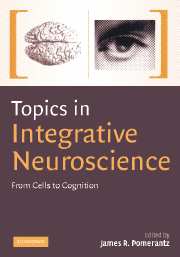Book contents
- Frontmatter
- Contents
- List of contributors
- Preface
- Overview of neuroscience, choice and responsibility
- 1 Neuroscience, choice and responsibility
- PART I HIGHER ORDER PERCEPTION
- PART II LANGUAGE
- Introduction to Language Section
- 5 Varying degrees of plasticity in different subsystems within language
- 6 The functional architecture of speech perception
- 7 Varieties of silence: the impact of neuro-degenerative diseases on language systems in the brain
- 8 Why is language unique to humans?
- PART III MEMORY SYSTEMS
- PART IV SENSORY PROCESSES
- Index
- Plate section
Introduction to Language Section
Published online by Cambridge University Press: 08 August 2009
- Frontmatter
- Contents
- List of contributors
- Preface
- Overview of neuroscience, choice and responsibility
- 1 Neuroscience, choice and responsibility
- PART I HIGHER ORDER PERCEPTION
- PART II LANGUAGE
- Introduction to Language Section
- 5 Varying degrees of plasticity in different subsystems within language
- 6 The functional architecture of speech perception
- 7 Varieties of silence: the impact of neuro-degenerative diseases on language systems in the brain
- 8 Why is language unique to humans?
- PART III MEMORY SYSTEMS
- PART IV SENSORY PROCESSES
- Index
- Plate section
Summary
The last decade of the twentieth century was unprecedented in its progress toward discoveries linking the anatomical structures and physiological systems of the brain to the human mind. This enterprise is possible now, both because of a large body of behavioral data characterizing the operations and subsystems within different domains of cognitive processing and because of great advances in the methods and techniques available to noninvasively image the structure and the physiology of the functioning human brain. The focus of this part is to consider different perspectives and approaches to the study of the brain systems important in language processing and in the development and differentiation of the language systems of the brain.
The study of language is particularly well poised to benefit from knowledge about underlying neural mechanisms. It has been recognized since the 1950s that the study of language is a model case for understanding the species-specific capacities of human learners and the brain mechanisms in human adults and infants that permit them. Language in humans is an extraordinary ability, showing many properties without parallel in other species; understanding the mechanisms underlying human language will therefore shed special light on human cognition. At the same time the lack of animal models that have made such powerful contributions to the characterization of nonlinguistic cognitive systems underscores the importance of the new noninvasive techniques for imaging the language systems of the human brain.
Information
- Type
- Chapter
- Information
- Topics in Integrative NeuroscienceFrom Cells to Cognition, pp. 121 - 124Publisher: Cambridge University PressPrint publication year: 2008
